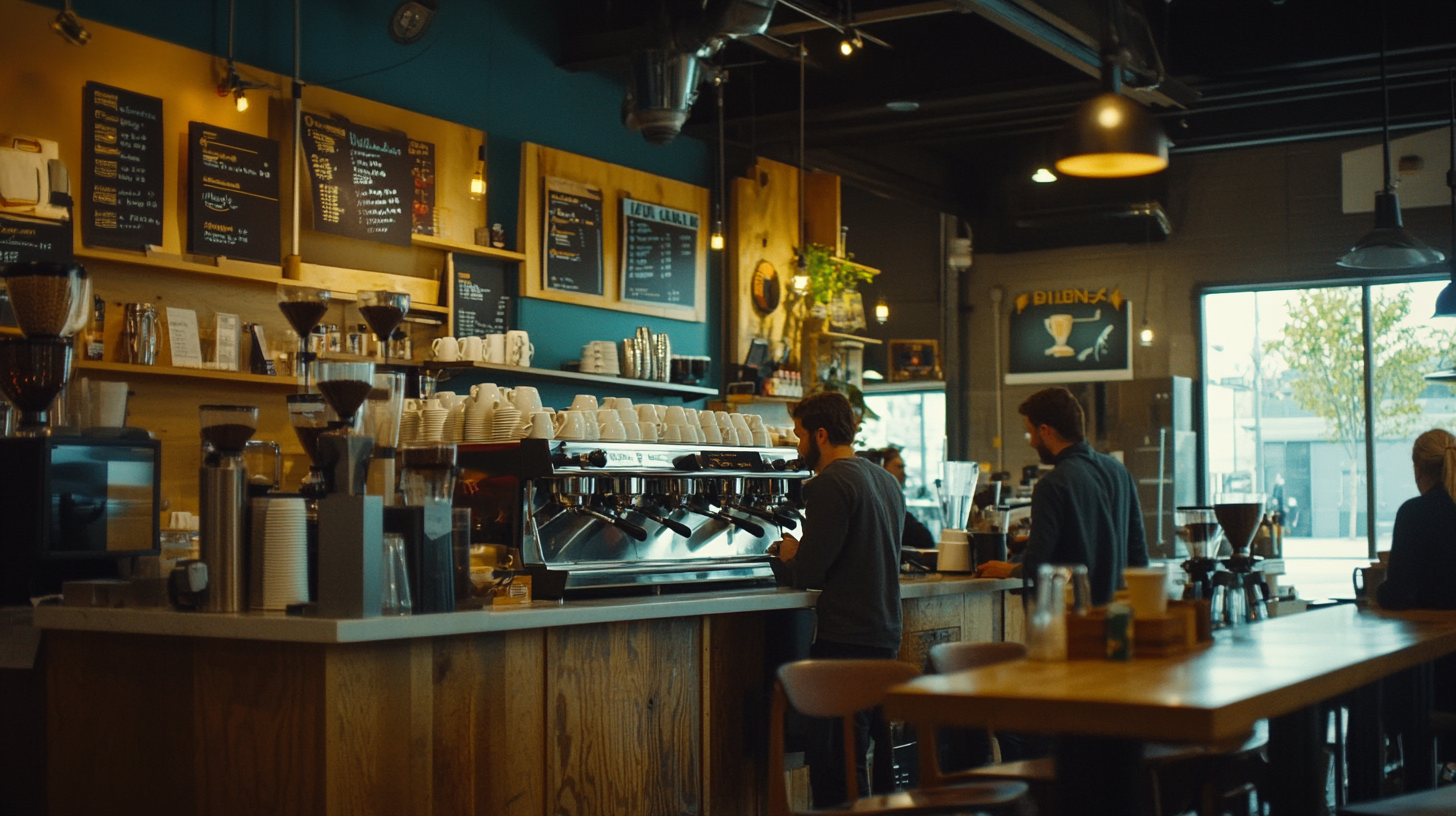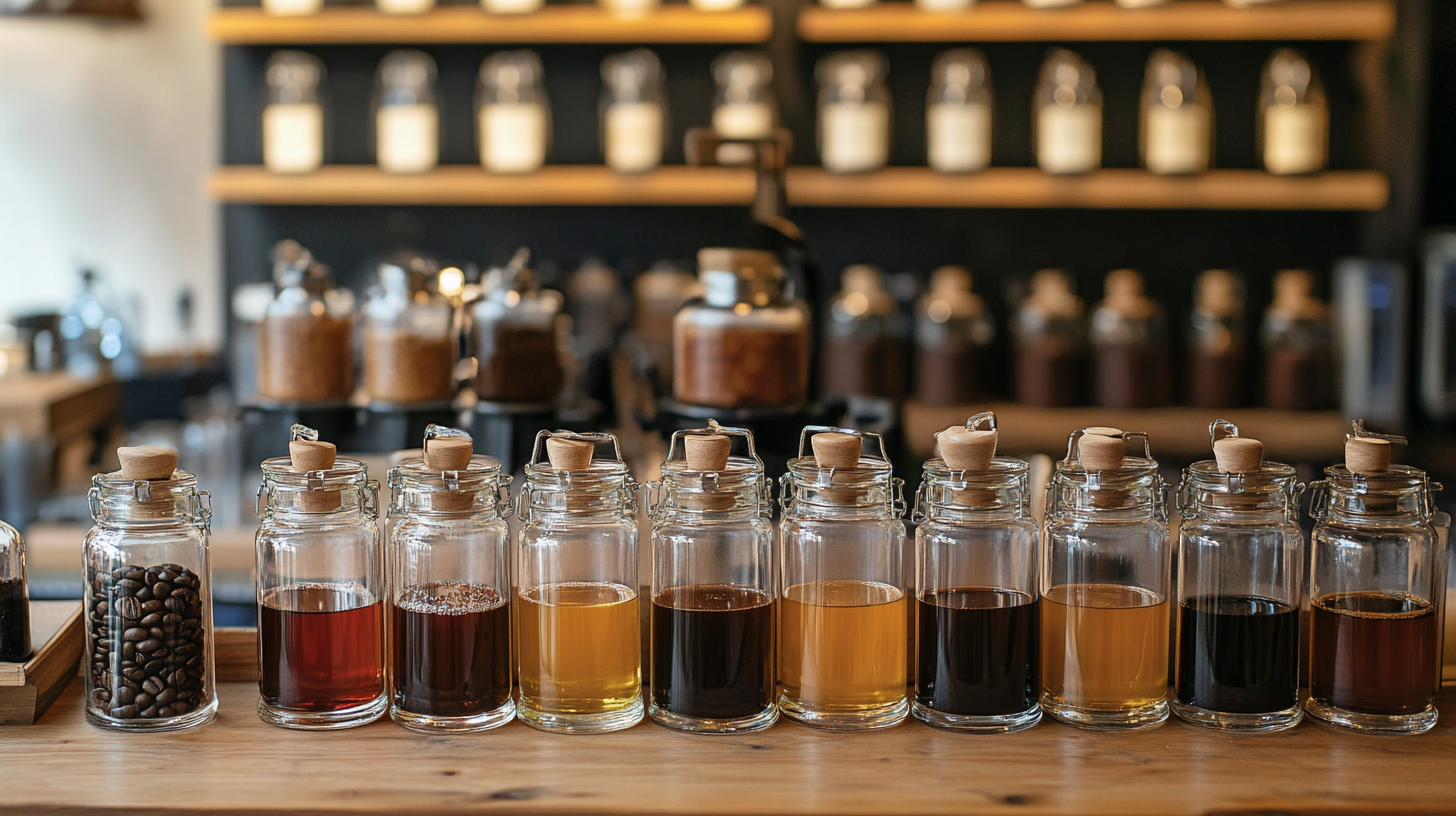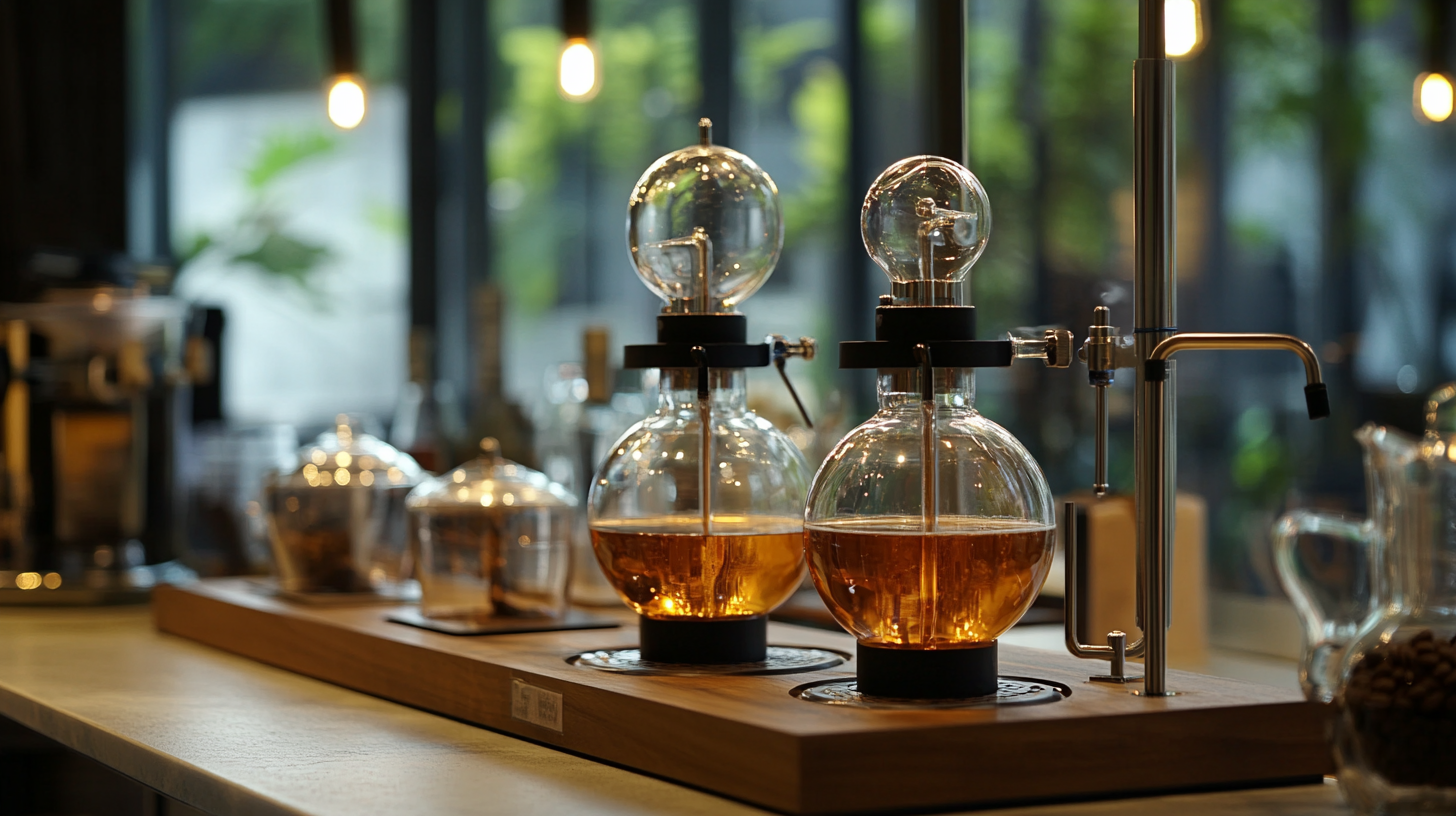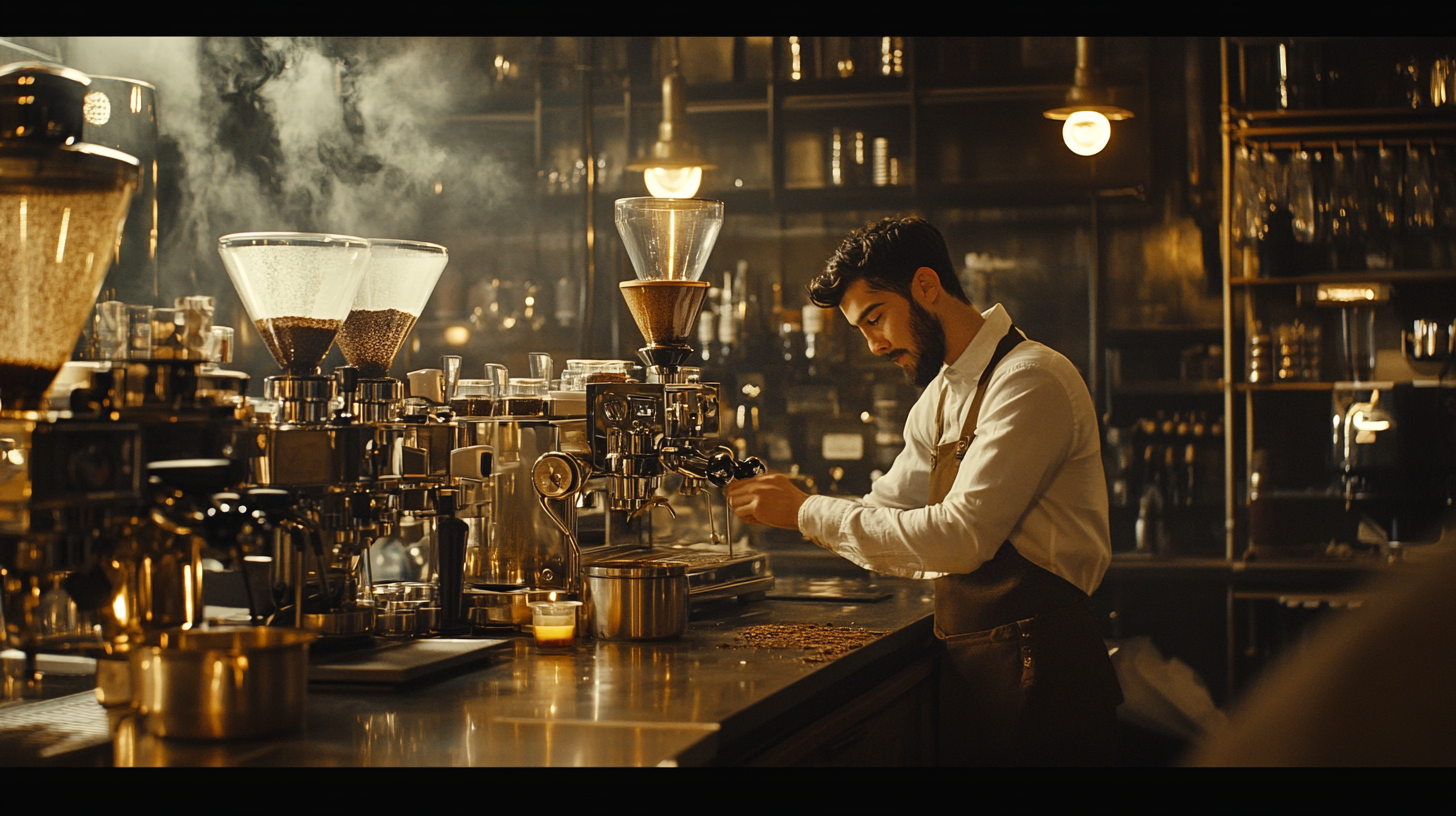

Navigating the Rise of Specialty Coffee in 2025 How to Leverage Barista Coffee Trends for Global Success
Coffee is an ever-changing world, and the specialty coffee boom has tremendously shifted consumer preferences and delineated new industry standards. By 2025, Barista Coffee has become not just a drink but rather a cultural affair that has taken the heart of many coffee lovers across the world. This change is an indication of people's growing demand for quality, unique flavors, and outstanding brewing skills. Hence, in this age of discerning coffee drinkers, it becomes imperative for any business hoping to excel in this dynamic market to delve into the nitty-gritty behind Barista Coffee trends.
This blog entry shall investigate how coffee businesses can harness burgeoning Barista Coffee trends toward global commercialization. By creating the new trend in brewing approaches, strong focus on sustainable sourcing, and an experience tailored for the customer, companies can suit up to live up to the modern consumer's expectations. Let's go through the latest exciting developments in specialty coffee and identify strategies that could help you survive and thrive amidst the rise of Barista Coffee in 2025.

Understanding the Specialty Coffee Movement: Key Drivers Behind Its Growth in 2025
Upward trends for the specialty coffee movement have gained outstanding momentum, and key drivers are propelling its growth in 2025. One driving force lies in the increasing consumer demand for high-quality and ethically sourced coffee. Consumers are becoming increasingly educated about their food and beverage choices, hence favoring brands that encourage sustainability and responsible sourcing. This change is also encouraging coffee producers to innovate their techniques, concentrating on distinguished flavor profiles and methods of roasting that accentuate the coffee experience. Another major player in the field of specialty coffee would be the influence of technology. Mobile applications and other online platforms are revolutionizing the consumer experience with coffee brands by permitting customization and establishing a stronger sense of community. Brewer technology advancements have rendered it convenient for consumers to replicate café-quality drinks at home, which has sparked curiosity in many coffee lovers about various brewing techniques and hence a love for specialty coffee. The specialty coffee culture, in itself, blends cultural experience and coffee appreciation. Nowadays, coffee shops are a venue for some community gatherings, local roasters hold tastings, workshops, and events that get consumers engaged with the coffee-making process. This experience encourages customer loyalty and puts the word out positively. With that said, specialty coffee's future will continue to be defined by the intersection of quality, technology, and community involvement as this movement reaches its full expression in the global beverage market.

Emerging Barista Techniques: Innovations Shaping the World of Coffee
In the dynamic waves of the coffee industry, the developing barista techniques have molded the phases of experiencing and enjoying the beloved beverage. As the clock moves towards 2025, nitro coffee infusion and advanced brewing methods are creating a trend among consumers and coffee enthusiasts. Nitro coffee is infused with nitrogen gas and although it gives a creamy texture, it elevates the sensory experience when had with its appearance as well as mouthfeel. Baristas are stepping beyond this technique, creating completely new drinks that echo to customers who are longing for more than just regular espresso with a combination of different flavors and textures.
On the other hand, specialty coffee has given rise to the development of precision brewing equipment and tools. The Clover and Aeropress are the latest devices which are helping baristas gather a perfect cup at constant quality. These innovations give leeway for control over brewing time and water temperature variables leading to a much more defined flavor profile. The trend towards an emphasis on transparency and origin have also opened channels for the new filtering methods adopted by the baristas for the integrity of the coffee whilst emphasizing its unique characteristics. Indeed, these cutting edge techniques allow coffee shops to price premium products while reaching out to consumers willing to be engaged in the more complex world of specialty coffee.
Lastly, technology is really breathing new life into the coffee-making process, restructuring the way barista practices would evolve. With all these mobile applications and smart coffee machines, consumers now have access to more information about coffee origins and brewing recommendations. Yet baristas are now using that same technology to educate their customers with personalized suggestions based on their individual tastes and preferences. It is certainly a technique guaranteed to keep customers loyal and set cafes on the frontline of a very competitive market. All in all, as baristas implement these modern techniques and technologies, they will not serve their beverages, but they will create experiences worth bringing customers to savor and learn about the art of coffee.

Consumer Preferences: How Taste Profiles are Evolving in Specialty Coffee
The specialty coffee world revolves in the direction of transformation through changing consumer preferences. Consumer knowledge about quality and sustainability is being emphasized more than they used to. As revealed by the 2022 Coffee Consumption Report of the Specialty Coffee Association, 62% of coffee drinkers prefer the specialty type; with growing interest in unique flavors and artisanal preparation methods, the trend will likely continue to escalate until 2025, with empowered consumers interested in taste profiles reflecting preferences.
As the barista and coffee-roasting communities respond to changing consumer demands, an understanding of taste profile evolution may prove invaluable. Reports signal that flavors once thought to be niche- hibiscus, jasmine, and tropical fruits- are becoming commonplace. A Mintel report shows 48% of millennials looking for coffee drinks with unusual flavors. This indicates that innovation in flavor combinations will be pivotal for drawing a younger consumer base. It is, therefore, the barista's responsibility to create beverages that, taste great, and represent these up-and-coming flavor profiles,
On the other hand, consumers' ethical concerns about specialty coffee are engaged. Transparency in sourcing and sustainable practices have gone from optional extras to necessary components of brand loyalty. According to a survey by Nielsen, 66% of consumers would pay more for sustainably sourced coffee. Baristas that follow these trends and proactively publicize their commitment to ethical sourcing will, in all likelihood, foster a loyal customer base that embraces quality and conscience.

Sustainability Practices: Aligning Specialty Coffee with Global Environmental Goals
The specialty coffee sector is evolving rapidly year after year, and it was predicted to grow from $39 billion to $83 billion by 2025; hence, the importance of sustainability begins to grow at a higher pace. Researchers found that about 60% of consumers were ready to take on an added cost for coffee with sustainability in its sourcing practices. It thereby makes the business case for coffee producers to position themselves internationally towards meeting world environmental objectives. Not only does this appear to make it 'right' commercially, but it also takes a significant leap towards addressing pressing issues such as climate change-related and resource depletion concerns that haunt major coffee-growing regions.
Sustainability manifests in a myriad of forms in the specialty coffee supply chain. A roaster or barista may engage in eco-friendly farming practices or direct-trade-their coffee as one way to source coffee and know it's been sourced ethically. According to the Specialty Coffee Association, approximately 50 percent of all green coffee produced in 2020 was specialty, which means that sustainability-minded growers are critical to upholding quality and environmental standards in coffee production.
Additionally, investments in green technologies, such as energy-efficient roasting equipment and recyclable packaging solutions, can very well stimulate the attractiveness of coffee brands among consumers. The Global Coffee Report further indicates that companies with these programs boost customer loyalty and affinity to 75 percent in the preference for brands perceived as sustainability proponents by millennials. This not only helps to meet the market demand but also nourishes environmental stewardship goals in the coffee sector.
Building a Brand: Marketing Strategies for Capturing Coffee Enthusiasts Worldwide
With the thriving nature of the specialty coffee industry, building a strong brand with an image that resonates with coffee lovers across the world is vital today. The formulation of such successful marketing strategies begins with recognizing and understanding the varying tastes and preferences of consumers from different cultures. This aims at instinctively utilizing market research in forecasting trends for product development that caters to local tastes so that your brand retains its stay and appeal.
Aggressive and smart social media marketing is a way to draw attention toward your brand from a global audience. Engaging content that tells the story of your coffee-from bean sourcing to brewing techniques-can maintain interest among your followers and help form a tight-knit community. Involving influencers and coffee experts can add to credibility, while interactive campaigns, such as virtual tastings or barista classes, can really engage coffee lovers around the world.
Adding sustainability to your brand story would be a major attraction to ethical consumers. By marketing your business as a leader in sustainable farming practices and transparent supply chains, you would uphold your brand's integrity and gel well with the values of today's coffee enthusiast. Initiatives that return to the coffee-growing communities, promote eco-friendly packaging solutions, or otherwise stress sustainability can give your brand big points among socially conscious consumers.